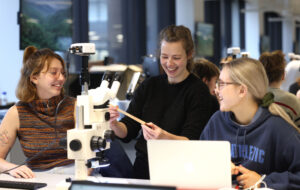Course overview
You will develop a broad overview of how our towns, cities and regions have developed and have an opportunity to specialise in environmental or urban regeneration issues. You will develop skills in research, urban design and geographic information systems, and explore a range of topics related to place-making, plan making, environmental sustainability, and urban and rural change.
You’ll gain a rounded understanding of the factors and forces that are shaping the environment and the role that planning can play in reconciling competing and conflicting interests. Attention is focused on approaches to the protection and enhancement of natural and built environments in a rapidly changing world.
Over the past thirty years Liverpool has been transformed economically, socially and environment. Staff and students from the University of Liverpool have been part of these changes as they have been observing, reflecting and helping local planners, developers and communities to shape these changes. This makes Liverpool an ideal urban laboratory to study how our world is changing. In addition, you will participate in two residential field classes within the UK and Europe, allowing you to understand different approaches to planning in different places.
An interdisciplinary approach to your studies provides learning opportunities that draw upon the expertise of academics in Planning as well as academics in the departments of Geography, Sociology and Architecture. This programme provides accreditation from the Institute of Environmental Management and Assessment (IEMA).
Accreditation
This programme provides accreditation from the Institute of Environmental Management and Assessment (IEMA).








